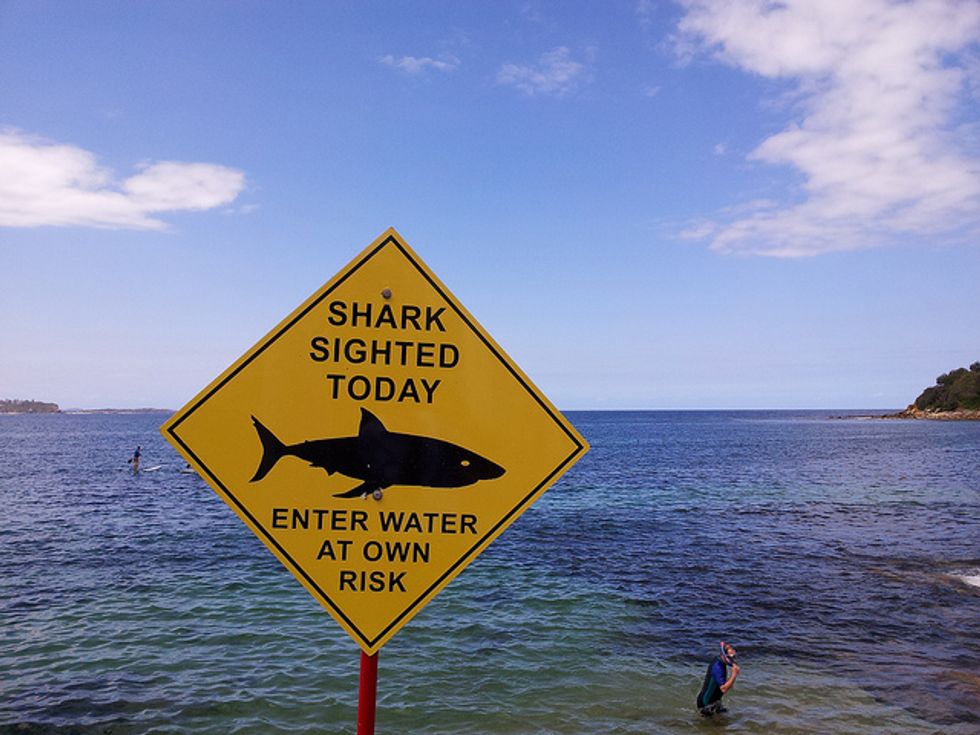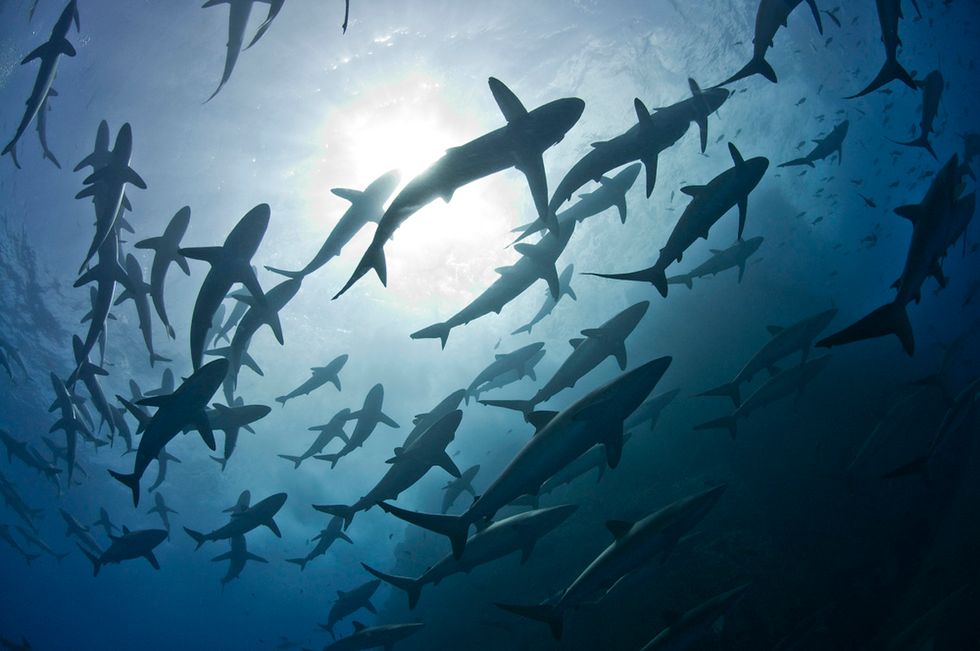You’ve definitely heard it before, the "Jaws" theme song starts to play in your head slowly as you jump into the ocean or wade farther into the waves. If you’re anything like me – of course, a shark encounter is on your mind at some point before entering the ocean for a quick dip. Growing up on the coast over the years, I’ve become used to seeing sharks and now, I’m not really scared anymore.
Sure, it definitely gets my heart racing when I see one out in the water, but I’d say it’s more of a healthy respect now more than a debilitating fear.
Here’s the thing: the ocean is their home. They live there – we are guests. Every time we enter the ocean we are entering the shark’s domain. Working on the beach over the summer, I can’t recall exactly how many people asked me “are there sharks here?” There were too many to count. Well, I hate to break it to ya – yes there are sharks…it’s the ocean…THEY LIVE THERE. That’s like visiting someone’s house and being surprised to run into them while you’re casually chillin’ on the couch watching Netflix, in their own house.
Okay, using that same metaphor, how often do you visit someone’s house and expect to be attacked by them? So, keep that in mind next time you’re in the ocean. If you’re a cultured person and watch "Shark Week" every year, you probably know that you’re more likely to get struck by lightning on a daily basis to get attacked by a shark. Just because you may happen to see one on your morning swim doesn’t necessarily mean that it’s going to attack you or even wants to attack you.
It’s this socially constructed irrational fear of sharks that leads to the killing of millions of sharks each and every year. In comparison, sharks are responsible for one fatal attack on humans every two years. How is that fair? The retaliation on sharks has led to the devastating decline in the shark population throughout international waters.
It may seem like the oceans harbor an indefinite amount of sea life that will replenish itself naturally, but this is definitely not the case. Regardless of global warming, which is another problem in itself, human carelessness towards the ocean has led to seemingly irreversible devastation.
Understanding how a food chain works is something that was ingrained in our minds in elementary school… along with other miscellaneous facts (yea, we know the mitochondria is the powerhouse of the cell). Take away the tertiary consumer, aka the shark, you’ll end up with an overabundance of smaller fish and a decline in the number of even smaller fish that are the food source for the small fish. Where does that leave you? It leaves you with a dysfunctional ocean ecosystem, all leading back to the absence of sharks. So, to put it in simple terms, WE NEED SHARKS.
We need to protect our oceans. It’s so important yet so many people still take it for granted. There are so many benefits of a healthy ocean, besides a beautiful place to visit once a year when you can get off work. Believe it or not, the ocean where the majority of the oxygen production take place so, even though we can’t breather underwater (yet), we need the ocean to breathe. It’s okay if you don’t understand the logistics of how the ocean ecosystem works and every organism that resides on the reef.
All you need to know is that every creature living in the sea plays a vital role in the balance and function of our oceans, including sharks. So, next time you hear or see someone implying that sharks are monsters or any of that BS, put your two-sense in. Sharks are not monsters and they aren’t invincible, they need our help too!





















